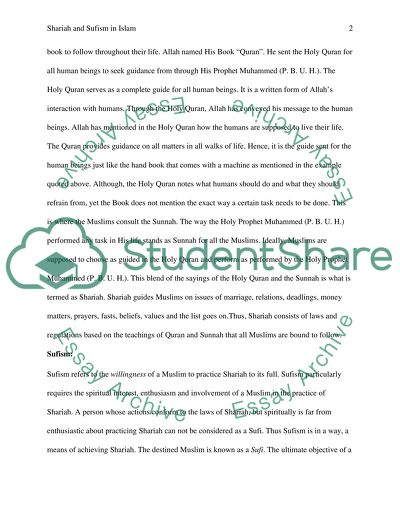Cite this document
(Shariah and Sufism in Islam Coursework Example | Topics and Well Written Essays - 1500 words, n.d.)
Shariah and Sufism in Islam Coursework Example | Topics and Well Written Essays - 1500 words. https://studentshare.org/religion-and-theology/1566010-shariah-and-sufism-in-islam
Shariah and Sufism in Islam Coursework Example | Topics and Well Written Essays - 1500 words. https://studentshare.org/religion-and-theology/1566010-shariah-and-sufism-in-islam
(Shariah and Sufism in Islam Coursework Example | Topics and Well Written Essays - 1500 Words)
Shariah and Sufism in Islam Coursework Example | Topics and Well Written Essays - 1500 Words. https://studentshare.org/religion-and-theology/1566010-shariah-and-sufism-in-islam.
Shariah and Sufism in Islam Coursework Example | Topics and Well Written Essays - 1500 Words. https://studentshare.org/religion-and-theology/1566010-shariah-and-sufism-in-islam.
“Shariah and Sufism in Islam Coursework Example | Topics and Well Written Essays - 1500 Words”. https://studentshare.org/religion-and-theology/1566010-shariah-and-sufism-in-islam.


